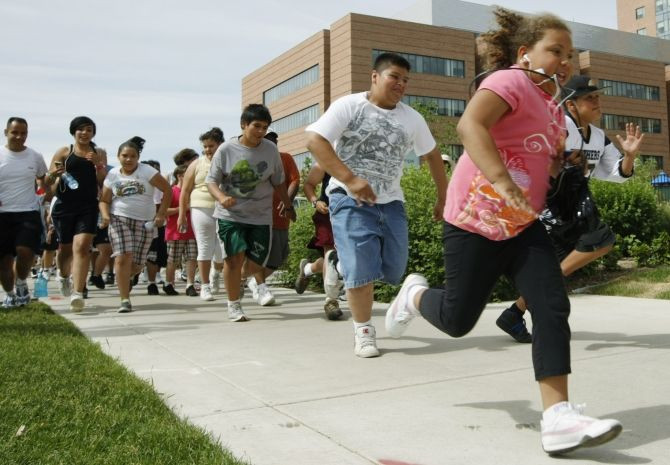Active Kids More Likely to Be Healthier and Leaner

Encouraging kids to play, rather than restrict their diet can be key in making kids healthy, says a new study from Australia.
The research team from Australian National University led by Professor Richard Telford found that increasing physical activity may be the best way to tackle the rise of childhood obesity.
The study included over 700 boys and girls between the ages 8 and 12. Physical activity of the children was measured using pedometers and accelerometers.
"Our four-year study of 734 otherwise healthy Australian children in the general community, aged between 8 and 12 years, found that the main difference between lean and overweight children was that lean children were more physically active," Professor Telford said.
"Indeed, our study found that leaner boys actually consumed more kilojoules over the four years of the study than overweight boys, but were much more physically active," Professor Telford said.
A recent study published in the journal Pediatrics also said that overweight boys and girls actually report fewer calorie intake than their normal-weight peers.
"The data also indicated that if a child became more active during the four years he or she became leaner. Alternatively, a child who became less active increased his or her body fat percent," said Professor Telford.
The study is published in the journal PLOS ONE.
Previous studies have shown that children and teens who are active report higher levels of happiness when compared to teens who are less physically active.
In the U.S.,12.5 million children and teens are affected by obesity which is nearly 17 percent of all children in the country, according to Centers of Disease Control and Prevention. In the last few years childhood obesity has almost tripled.
Previous research has shown that children spend less than 4 percent of the time they are awake in physical activities, which is just about 20 minutes a day. The recommended time for physical activity is about 60 minutes for children.
"General community strategies involving dietary intake and physical activity to combat childhood obesity may benefit by making physical activity the foremost focus of attention," Professor Telford said.



























